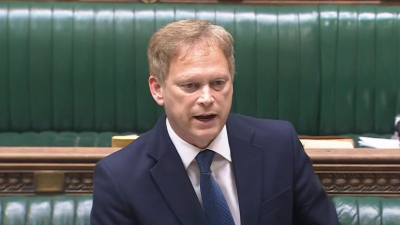Guarding Against Complacency: Labour's High Command Girds for Potential Victory
The directive from Labour's highest echelons couldn't be clearer: no room for complacency. Despite the staggering 99% likelihood forecasted by Sir John Curtice for a Labour government post-general election, nothing is to be taken for granted. While victory, perhaps even a resounding one, looms as a possibility, recent polling data has infused the party with cautious optimism.
The most recent YouGov survey paints a picture of potential triumph for Sir Keir Starmer, teetering on the brink of a landslide akin to Tony Blair's historic victory in 1997. Projections place Labour at 403 MPs, with the Conservatives trailing at 155, Liberal Democrats at 49, and the SNP at 23, culminating in a commanding 154-seat majority for Labour.
Further bolstering this momentum, a recent Survation poll, employing the same meticulous MRP methodology, delivers a devastating blow to the Conservatives, potentially reducing their presence in Parliament to a mere 100 MPs. In contrast, Sir Keir Starmer stands poised to secure an unprecedented 256-seat majority, effectively reshaping the political landscape.
Yet, amid these projections lies a sobering reality for the Conservatives, with prominent figures such as Iain Duncan Smith, Jacob Rees Mogg, Penny Mordaunt, Jeremy Hunt, Grant Shapps, and James Cleverly facing perilous re-election prospects. The consistency of public sentiment across various polls underscores a palpable disillusionment with the current Conservative leadership.
As speculation mounts and the possibility of a landslide victory looms larger, attention turns to the composition of a prospective Labour government. Despite lacking the charismatic appeal of Tony Blair, Keir Starmer's leadership, albeit with negative personal ratings, presents a formidable force on the political stage. In the event of a landslide, continuity may well be the order of the day, with Prime Minister Starmer likely to maintain the status quo within his shadow cabinet.
With the nation and Labour leadership alike urged to guard against complacency, the prospect of a seismic shift in the political landscape demands meticulous preparation and unwavering focus. The specter of a landslide victory beckons, and the contours of a potential Labour government begin to take shape amidst a landscape ripe for change.
Navigating New Territories: Challenges and Opportunities Await Labour's Potential Government
In the corridors of power, the ascent of David Lammy to the Foreign Office and Rachel Reeves to the Chancellorship would lack the seasoned authority and reputation of predecessors like Robin Cook and Gordon Brown. Moreover, they would inherit a landscape fraught with economic and international complexities, demanding astute navigation.
Across the governmental spectrum, Yvette Cooper's tenure at the Home Office mirrors the gravitas of Jack Straw's incumbency. Tasked with addressing the tinderbox issue of immigration, Cooper faces a critical juncture amidst heightened public concern.
While seasoned ministers like Cooper hold sway in key portfolios, the impetus for fresh ideas may emanate from emerging figures such as Wes Streeting in health and Angela Rayner, Labour's deputy leader. Starmer's blueprint for governance hinges on consolidating control, with Reeves, Rayner, and Pat McFadden comprising the executive core. Reeves and McFadden are poised as guardians of economic rigor, yet strains may surface as demands intensify for tangible improvements in public services.
A resounding electoral mandate would leave Labour little room for excuses, compelling swift action on pledged reforms within the first 100 days. However, the absence of detailed plans raises questions about the feasibility of enacting proposed measures, particularly in navigating parliamentary hurdles and avoiding unnecessary confrontations with the opposition.
As Labour prepares for potential governance, the composition of its parliamentary cohort underscores a generational shift, with a significant proportion of newcomers set to take their seats. Dubbed "Starmtroopers" in winnable constituencies, these fresh faces symbolize a rejuvenated party, attuned to the priorities of a younger demographic.
Against this backdrop, the party's agenda must address pressing concerns such as housing affordability and escalating university costs, resonating with millennial constituents. As Labour charts its course toward potential victory, the interplay between experience and innovation will shape its capacity to meet the challenges and aspirations of a changing electorate.
Political Terrain Ahead: Navigating Challenges in the Wake of Brexit and Gender Self-ID
The reverberations of Brexit on the Conservative Party and the contentious issue of gender self-identification within the Scottish government are poised to temper ambitions to push forward on divisive fronts. Drawing parallels to Tony Blair's untroubled initial term, Keir Starmer stands to benefit from a blend of relative political neophytes and a sense of indebtedness within Labour ranks.
With the incoming prime minister pledging allegiance to both executive authority and regional empowerment, internal dissent within Labour may manifest from incumbent mayors in key cities like Manchester, Liverpool, and London, contingent upon their re-election this year. However, the likelihood of a landslide victory casts doubt on the efficacy of robust opposition from the vanquished.
In the wake of a decisive electoral outcome, the Conservative Party would find itself hamstrung in parliament, reminiscent of the tumultuous intra-party strife witnessed during the Blair years. Meanwhile, the Liberal Democrats may relish their resurgence as the UK's third political force, at the expense of the SNP, yet substantive contributions from either party beyond symbolic gestures appear dubious.
Reflecting on the shadow cast by Tony Blair's New Labour era, the landscape of constructive government scrutiny has evolved dramatically, with traditional media outlets yielding ground to a fragmented array of platforms, some more inclined towards advocacy than impartial journalism. Analogous to the relentless scrutiny faced by Barack Obama and Joe Biden in the US, Starmer should brace for an immediate onslaught upon assuming office, devoid of any customary political honeymoon.
Following what may be perceived as a "time for change" election, the electorate may initially extend a degree of leniency towards the new government. Yet, the duration of this grace period remains uncertain, raising questions about the endurance of public patience amidst evolving political dynamics.
As the political landscape shifts, navigating the complexities of post-election governance demands astute leadership, adept at reconciling competing interests and fostering inclusive dialogue. In an era marked by polarization and perpetual scrutiny, the endurance of political mandates hinges on responsiveness, transparency, and a steadfast commitment to addressing the pressing needs of the populace.
Forging a Path to Change: Starmer's Vision for Governance
Keir Starmer has unequivocally conveyed that his administration will require two consecutive terms to effect substantive change. A resounding electoral triumph would lay the groundwork for such transformative endeavors. Reflecting on Tony Blair's retrospective lamentations, the former premier has often regretted the sluggish start and unrealized potential of his initial term. Contrary to expectations, Blair's pre-election focus centered on coalition negotiations with Paddy Ashdown's Liberal Democrats rather than anticipating a landslide victory.
While prudence has its merits, seizing the moment and maximizing opportunities are imperative. As legions of voters express their desire for a Labour triumph, the onus falls upon Starmer's steadfast hierarchy to strategize meticulously for the prospect of a decisive electoral mandate.
Amidst fervent anticipation for change, the electorate awaits assurance that Starmer's administration possesses a coherent blueprint for capitalizing on a substantial victory. As aspirations for meaningful reform echo across the political spectrum, the imperative for foresight and proactive governance grows ever more pressing.
In conclusion, as Keir Starmer charts the course for Labour's potential ascension to power, the prospect of a landslide victory looms large. Echoes of Tony Blair's cautionary tale underscore the importance of seizing the moment and capitalizing on electoral success. While the road to transformative governance may span multiple terms, the imperative for proactive planning and strategic vision cannot be overstated. As voters clamor for change and place their trust in Starmer's leadership, the onus falls squarely on his administration to translate electoral mandate into tangible progress. With the nation poised on the precipice of political transformation, the significance of foresight and astute governance cannot be overstated. It is within the crucible of decisive action and strategic planning that the promise of real change lies, awaiting realization under Starmer's stewardship.







